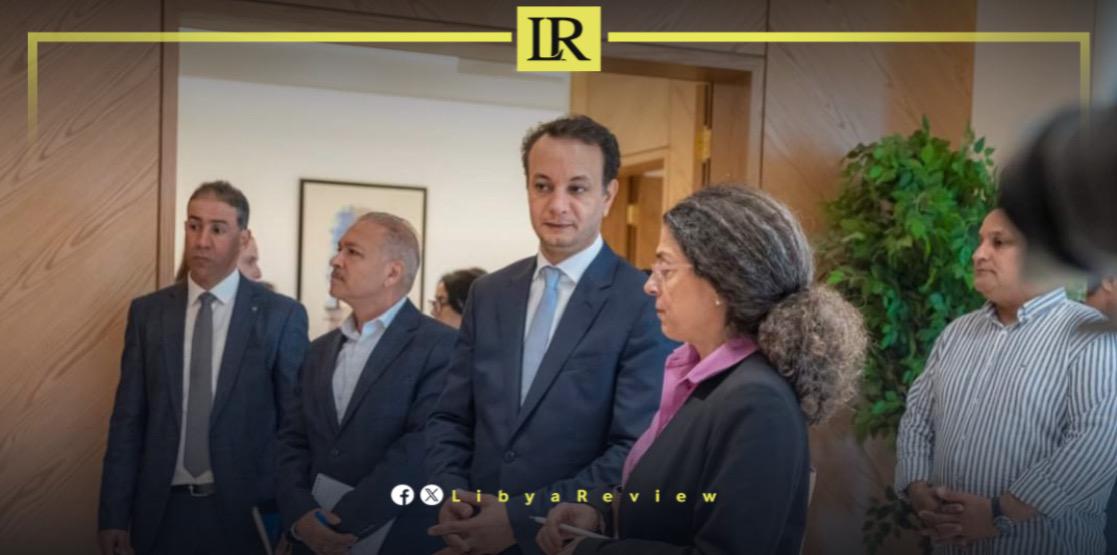On Thursday, the Director General of the Libya Development and Reconstruction Fund, Belgasem Haftar, met with Stephanie Khoury, Acting Head of the United Nations Support Mission in Libya (UNSMIL), and her accompanying delegation, in Benghazi.
During the meeting, Haftar provided a detailed explanation of the reconstruction strategy for cities and regions included in the plan. He also discussed several points of mutual interest between the two parties.
Stephanie Khoury began her visit to eastern Libya about a week ago, holding numerous meetings, including discussions with Field Marshal Khalifa Haftar, Commander of the Libyan National Army, and Ageela Saleh, Speaker of the House of Representatives.
The meeting between Belgasem Khalifa Haftar and Stephanie Khoury is a significant step in ongoing efforts to rebuild and stabilize Libya, particularly in the eastern region, which has been heavily impacted by years of conflict.
The detailed reconstruction strategy presented by Haftar highlights the Libyan authorities’ commitment to rebuilding infrastructure, restoring services, and improving the quality of life for residents in the affected areas.
The reconstruction plan aims to address the extensive damage caused by the prolonged conflict. It includes rebuilding essential infrastructure such as roads, schools, hospitals, and public utilities. The strategy also focuses on economic revitalization, aiming to create jobs and stimulate economic growth through various development projects.
International support, particularly from organizations like the United Nations, is crucial for the success of Libya’s reconstruction efforts. The presence of Stephanie Khoury and her delegation underscores the international community’s commitment to supporting Libya’s recovery.
Her meetings with key Libyan leaders demonstrate a coordinated effort to ensure that reconstruction plans align with broader peacebuilding and stabilization initiatives.
Rebuilding eastern Libya presents both significant challenges and opportunities. The region has suffered from extensive infrastructure damage, economic disruption, and social dislocation.
However, the reconstruction process also offers a chance to build back better, creating more resilient and sustainable communities. Effective collaboration between Libyan authorities and international partners will be essential in overcoming these challenges and maximizing the opportunities for long-term development.


